Physical Address
As a Meharry student there are a variety of programs available to you, all of which ultimately guide you to an MD degree. Most students will select the traditional four-year program that is separated into a two-year preclinical education, during which students will learn the principles of basic sciences, and a two-year clinical rotation curriculum through which students will see and learn from patients in various clinical settings.
Meharry Medical College: Statistics
Meharry Medical College Acceptance rate and admissions statistics
We’ve calculated the 10% acceptance rate for Meharry Medical College based on the ratio of admissions to applications and other circumstantial enrollment data. Treat this information as a rough guide and not as a definitive measure of your chances of admission. Different programs may have significantly varying admissions rates.
Enrollment demographics by race or ethnicity
| Black or African American | 836 (87%) |
|---|---|
| Asian | 58 (6%) |
| White | 42 (4%) |
| Hispanic | 21 (2%) |
| American Indian or Alaska Native | 3 (0.3%) |
Costs per year: Tuition, Housing, Fees
Tuition and fees
| Graduates | |
|---|---|
| Tuition in-district | $27,570 |
| Tuition in-state | $27,570 |
| Tuition out-of-state | $27,570 |
| Fee in-district | $4,915 |
| Fee in-state | $4,915 |
| Fee out-of-state | $4,915 |
Room and board costs
Meharry Medical College majors
Meharry Medical College has granted 139 master’s across 2 programs and 176 doctorate degrees across 3 programs. Below is a table with majors that lead to degrees at Meharry Medical College.
| Major | Master | Doctoral |
|---|---|---|
| Health Services & Allied Health & Health Sciences, General | 122 | |
| Medicine | 110 | |
| Dentistry | 62 | |
| Public Health, General | 17 | |
| Biological and Biomedical Sciences, Other | 4 | |
| Grand Total | 139 | 176 |
Publications & Citations
Meharry Medical College has published 4,159 scientific papers with 81,166 citations received. The research profile covers a range of fields, including Medicine, Biology, Genetics, Chemistry, Biochemistry, Pathology, Liberal Arts & Social Sciences, Psychology, Computer Science, and Immunology.
Publication / Citation count by topic
Annual publication & citation counts
| Year | Publications | Citations |
|---|---|---|
| 1990 | 38 | 204 |
| 1991 | 42 | 209 |
| 1992 | 37 | 208 |
| 1993 | 30 | 196 |
| 1994 | 32 | 234 |
| 1995 | 50 | 257 |
| 1996 | 50 | 272 |
| 1997 | 41 | 367 |
| 1998 | 45 | 501 |
| 1999 | 46 | 549 |
| 2000 | 53 | 704 |
| 2001 | 48 | 760 |
| 2002 | 62 | 915 |
| 2003 | 68 | 986 |
| 2004 | 68 | 1055 |
| 2005 | 60 | 1287 |
| 2006 | 101 | 1484 |
| 2007 | 88 | 1557 |
| 2008 | 122 | 1763 |
| 2009 | 125 | 1958 |
| 2010 | 159 | 2230 |
| 2011 | 164 | 2675 |
| 2012 | 184 | 3152 |
| 2013 | 171 | 3435 |
| 2014 | 178 | 3757 |
| 2015 | 156 | 4064 |
| 2016 | 157 | 4015 |
| 2017 | 157 | 4277 |
| 2018 | 177 | 4243 |
| 2019 | 164 | 5007 |
| 2020 | 178 | 6122 |
| 2021 | 271 | 7863 |
| 2022 | 274 | 8180 |
Meharry Medical College alumni
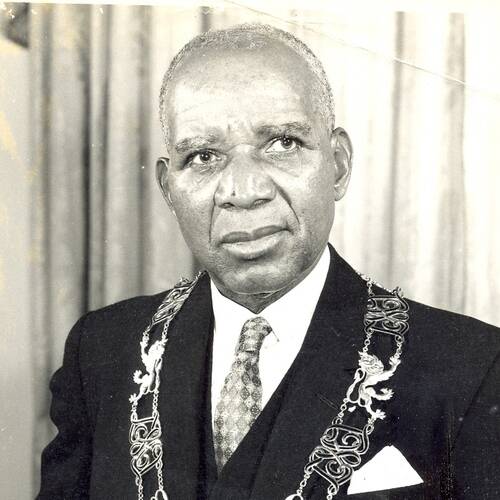
Biography Hastings Kamuzu Banda was the prime minister and later president of Malawi from 1964 to 1994 (from 1964 to 1966, Malawi was an independent Dominion / Commonwealth realm). . + show more
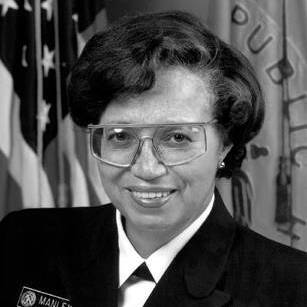
Biography Audrey Forbes Manley is an American pediatrician and public health administrator. Manley was the first African-American woman appointed as chief resident at Cook County Children’s Hospital in Chicago (1962). Manley was the first to achieve the rank of Assistant Surgeon General (Rear Admiral) in 1988 and later served as the eighth president of Spelman College. . + show more
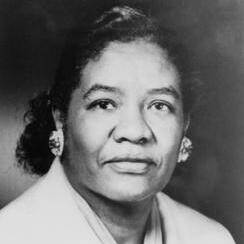
Enrolled in Meharry Medical College In 1948 graduated with Doctor of Medicine Occupations teacher politician surgeon writer
Biography Dorothy Lavinia Brown, also known as “Dr. D.”, was an African-American surgeon, legislator, and teacher. She was the first female surgeon of African-American ancestry from the Southeastern United States. She was also the first African American female to serve in the Tennessee General Assembly as she was elected to the Tennessee House of Representatives. While serving in the House of Representatives, Brown fought for women’s rights and for the rights of people of color. . + show more
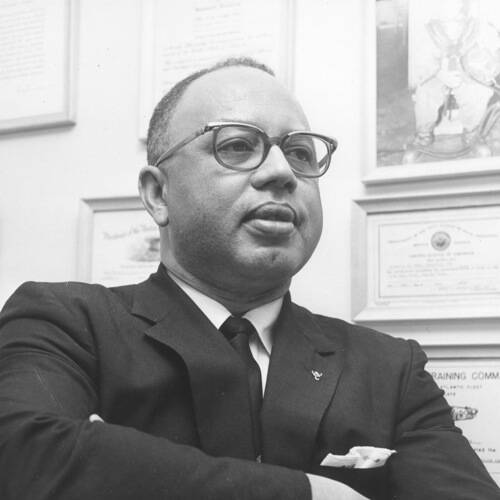
Biography Emerson Emory was an American internist and psychiatrist from Dallas, Texas. Aspiring to be a doctor from an early age, he attended Prairie View State Normal and Industrial College before serving in the Quartermaster Corps of the United States Army during World War II. After studying at Lincoln University in Pennsylvania and Meharry Medical College in Nashville, Tennessee, Emory conducted his residency at St. Paul’s Hospital, which was the first major hospital in Dallas to grant staff privileges to African American doctors. . + show more
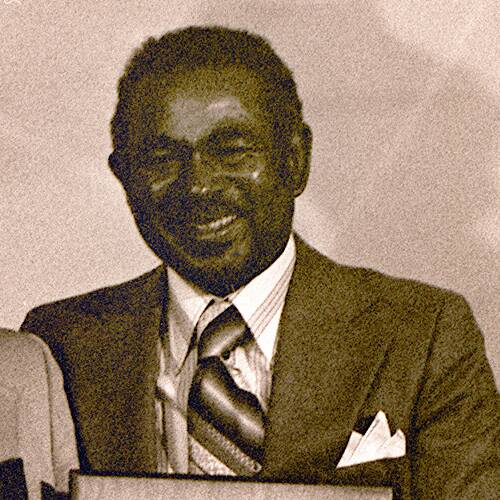
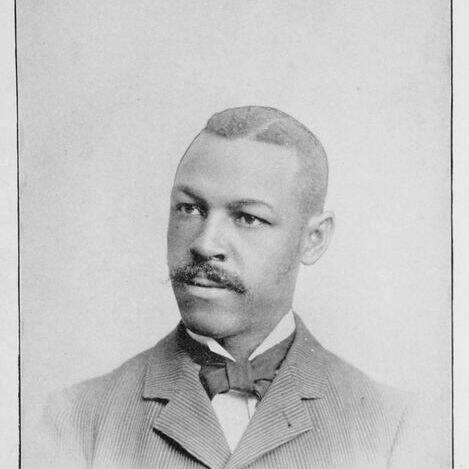
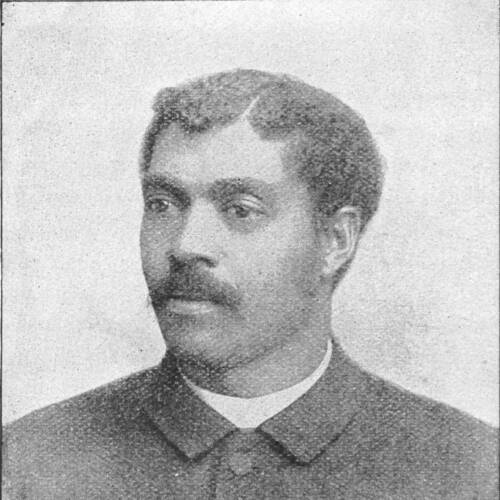
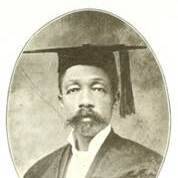
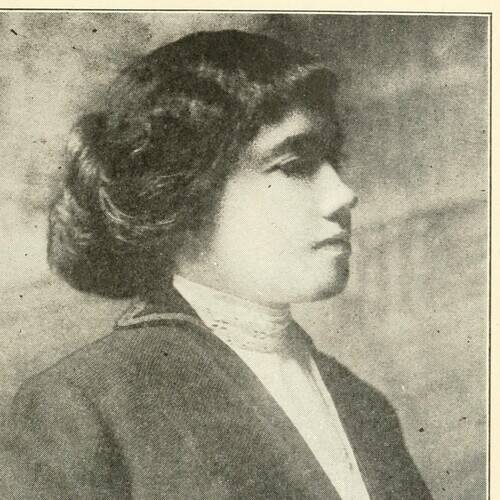
General info
| Alternative names | MMC |
|---|---|
| Founded | 1876 |
| Academic calendar | Semesters |
| Total FTE staff | 668 |
| Carnegie classification | Special Focus Four-Year: Medical Schools & Centers |
Location and contacts
| Address | 1005 DB Todd Blvd. Nashville, Tennessee, 37208 United States |
|---|---|
| City population | 668,000 |
| Phone | 6153276111 |
How to Get Into Meharry Medical College: Requirements and Strategies
How hard is it to get into the Meharry Medical College? Learn about the school’s acceptance rate, admissions requirements, and strategies for tackling Meharry secondary application essays

Part 1: Introduction
Part 2: Meharry Medical College School of Medicine programs
Part 3: How hard is it to get into Meharry Medical College?
Part 4: Meharry Medical College secondary application essays (examples included)
Part 5: Meharry Medical College interview
Part 1: Introduction
Meharry Medical College, one of three historically Black medical schools in the United States, is located in Nashville, Tennessee and affiliated with the United States Methodist Church. Founded in 1876, it has a long-standing history of fostering a community of healthcare professionals and trainees that is focused on eliminating healthcare disparities plaguing disadvantaged patient populations. Specifically, the institution pledges to offer clinical education to a diverse student body and places an emphasis on training the next generation of African American physician leaders.
As a Meharry medical student, you will benefit from treating patients in Nashville, a cultural epicenter. You’ll have the opportunity to rotate at a variety of clinical sites, which include the state-of-the-art Metropolitan Nashville General Hospital, the Elam Mental Health Center, and the Vanderbilt Medical Center. Additionally, there will be an abundance of research opportunities that examine various factors that contribute to poor health outcomes in underserved patient populations.
Given the school’s very specific mission, your job as an applicant is to convince the admissions committee that you are the right fit for their program. Read on to learn more about Meharry’s requirements and admissions statistics, plus secondary essay strategies that you can use to help your application stand out.
Part 2: Meharry Medical College School of Medicine MD programs
As a Meharry student there are a variety of programs available to you, all of which ultimately guide you to an MD degree. Most students will select the traditional four-year program that is separated into a two-year preclinical education, during which students will learn the principles of basic sciences, and a two-year clinical rotation curriculum through which students will see and learn from patients in various clinical settings.
In addition to this program, Meharry students may also pursue the following options:
- BS/MD program: This is an eight-year program through which enrolled students will first complete a four-year undergraduate Bachelor of Science degree at one of ten historically black colleges and universities (HBCUs), then link into the four-year MD program at Meharry if they complete the necessary requirements and meet the appropriate benchmarks.
- MD/PhD program: Students interested in a graduate medical education and a graduate research education should consider applying to the MD/PhD program, which is achieved by a partnership between the Medical College and the School of Graduate Studies and Research. These students must meet the separate requirements for both the MD and PhD programs and will apply to the program jointly.
Meharry Medical College tuition and scholarships
For 2022–2023, tuition and fees at Meharry Medical College cost $63,688. When taking into account additional costs such as room and board, academic materials, and personal expenses, the total cost of attendance is estimated at $92,134 for the first year. Given that Meharry is a private institution, in-state and out-of-state residents pay the same tuition.
Approximately 90 percent of Meharry Medical College students qualify for financial assistance through either financial aid or institutional scholarships. The Office of Student Financial Aid has an integral role in helping students apply for and receive financial aid.
Part 3: How hard is it to get into Meharry Medical College?
Meharry Medical College admissions statistics
In order to best understand how likely it is for you to receive an acceptance letter from Meharry Medical College, it’s important to look at the admissions data. Meharry does not currently publish its acceptance or interview figures, but based on its high number of applicants, we can estimate its acceptance rate to be quite low, somewhere in the range of 3–4 percent. Here are some numbers for the class of 2024:
While Meharry does not make available the GPA and MCAT scores of its most recent successful applicants, in recent years matriculants have had the following statistics:
Additionally, Meharry Medical College seeks to select patients from racially and ethnically diverse backgrounds, given that it is a historically Black medical school. The breakdown of race and ethnicity admissions statistics for the entering class of 2019 is included below:
- White: 13%
- Black or African American: 86%
- Asian: 10%
- Hispanic, Latino, or of Spanish origin: 5%
- Other: 4%
Meharry Medical College requirements
The admissions selection committee at Meharry Medical College will evaluate candidates across a host of criteria including intelligence, preparedness, motivation, and aptitude. Of note is that students who have been dismissed from other medical schools will not be considered for admission. International applicants will be considered only if they have a permanent resident visa; however, Canadian applicants will receive special consideration.
To apply to Meharry, you must complete the below list of requirements and achieve an average GPA of at least 3.5 in these required courses in order to be considered a competitive applicant. This will demonstrate that you have a strong premedical foundation that will lead to your likely success as a medical student and future physician.
- General biology or zoology: 8 semester hours or 12 quarter hours with lab
- Inorganic chemistry with qualitative analysis: 8 semester hours or 12 quarter hours with lab
- Organic chemistry: 8 semester hours or 12 quarter hours with lab
- General physics: 8 semester hours or 12 quarter hours with lab
- English composition: 6 semester hours or 9 quarter hours
- Biochemistry : 3 semester hours or 5 quarter hours
You will also be required to take the Casper test prior to your interview at Meharry. The Casper test is a 90-minute situational judgment test that’s administered electronically. You can find more information about how to prepare for the Casper test by reading our guide How to Prepare for the Casper Test to Get Into Medical School.
Meharry has specific parameters around MCAT testing for applicants. MCAT scores must be no older than three years and taken no more recently than August 1st of the year prior to the year you plan to matriculate. In the 2023–2024 application cycle, the MCAT must be taken by August 1st, 2023.
Furthermore, applicants must have a science GPA of 3.5 or higher and an MCAT score of at least 498.
Meharry Medical School application timeline
You will apply to Meharry Medical School using the AMCAS application. To do so, you can plan your application around the following timeline:
- May 2, 2023: AMCAS application opens
- May 30, 2023: AMCAS application can be submitted
- June 2023: Application review begins
- August 1, 2022: AMCAS application deadline for Early Decision
- September 2023–April 2024: Interviews conducted
- October 1, 2023: Early Decision candidates notified
- December 15th, 2023: AMCAS application deadline
- April 30, 2024: Deadline to commit to only one school
While Meharry doesn’t list deadlines specific to their secondary application, anecdotal evidence suggests that secondary applications are sent to eligible applicants relatively quickly, beginning in late June. Plan to submit both your primary AMCAS application and your secondary application on the early side so you can be among the candidates reviewed by the admissions committee in August.
Part 4: Meharry Medical College secondary application essays (examples included)
The Meharry Medical College secondary application contains just two questions, each with unlimited space for your response. Take care in writing these essays as they provide the best opportunity (along with your personal statement) to differentiate yourself from the applicant pool and provide evidence of strong fit between you and Meharry.
Below we’ve provided example essays and detailed why they are successful. For further guidance on crafting excellent responses to these questions, read through our guide to secondary essays, particularly the sections on the “Why us?” prompt and the adversity essay.
Question 1: Why do you wish to attend Meharry Medical College School of Medicine?
I recall accompanying my Popa, my paternal grandfather, to see a primary care doctor for the first time in several months despite his elderly age and chronic conditions. He suffered from diabetes and more recently, he was having trouble seeing clearly and suffering from a tingling discomfort in his toes despite taking his metformin regularly. Upon further investigation, we learned that his sugars were through the roof and his diabetes was uncontrolled, despite his compliance with his medication. His doctor explained to him that he would require insulin to control his sugars. My Popa did not have health insurance and our family had been able to afford his metformin because our doctor had told us about Walmart’s $4 list; we could purchase a 30-day supply of metformin for only four dollars. Now, we faced paying upwards of $1,200 for his monthly insulin supply. The cost discrepancy was outstanding.
As the first person to attend college in my family, I have always been motivated to succeed so that our future generations can benefit from my hard work. My family’s experience accessing healthcare services and facing the high costs of various treatments propelled me on a quest to deconstruct these disparities through research and clinical exposure. Specifically, as an undergraduate student in Philadelphia, I performed healthcare disparities research at the Penn Institute of Health Economics. My main study focused on addressing the racial-ethnic inequalities in young adults with obesity. Here, I recognized that Black young adults in particular are at a higher risk for becoming obese because of limited access to healthy foods, lack of information, and minimal support mechanisms. I worked with my team to create a free educational platform that highlighted healthier choices through direct comparisons; for example, we provided recommendations for alternatives for sugary drinks such as juice and soda. This experience taught me the importance of looking closely at the systemic factors that affect healthcare outcomes and then applying these insights to drive meaningful change in underserved communities.
As a future physician, I aim to inform my medical decision making with an understanding of how socioeconomic and racial-ethnic disparities affect health outcomes of individuals. For this reason, I believe that Meharry Medical College School of Medicine is the best fit for me. The mission statement of Meharry empowers its students to focus on disparities and think systematically about how these factors influence the well being of others. At Meharry, I would look forward to continuing my exploration of these topics through research at the Health Disparities Research Center for Excellence and through reading articles published by the Journal of Health Care for the Poor and Underserved. Additionally, I would love the opportunity to volunteer at the Saltwagon Clinic to connect patients with necessary primary care services. The wealth of clinical, research, and community resources at Meharry would allow me to emerge as a well rounded, informed physician who can embark on a path to treating patients with an understanding of their community similar to how my grandfather’s physician did for him.
Why does it work?
- This essay comprehensively and succinctly tells the admissions committee several reasons why she would thrive in the Meharry Medical College School of Medicine environment. Her story about her grandfather’s lack of access to affordable medications is an example of how healthcare disparities have affected and motivated her on a personal level.
- Moreover, she demonstrates a clear curiosity for learning more about these issues through her former research experience. She connects her clinical and research interests to the mission and offerings of Meharry to demonstrate why she would be an excellent fit at the medical school.
- Importantly, she also highlights specific opportunities at Meharry such as the Health Disparities Research Center for Excellence and the Saltwagon Clinic to demonstrate she has done research and identified experiences that she would participate in while a medical student.
Question 2: Please describe a personal situation of failure, significant challenge or a major obstacle that you have overcome. Include a description of your coping skills and lessons you learned about yourself from that situation.









